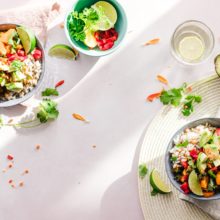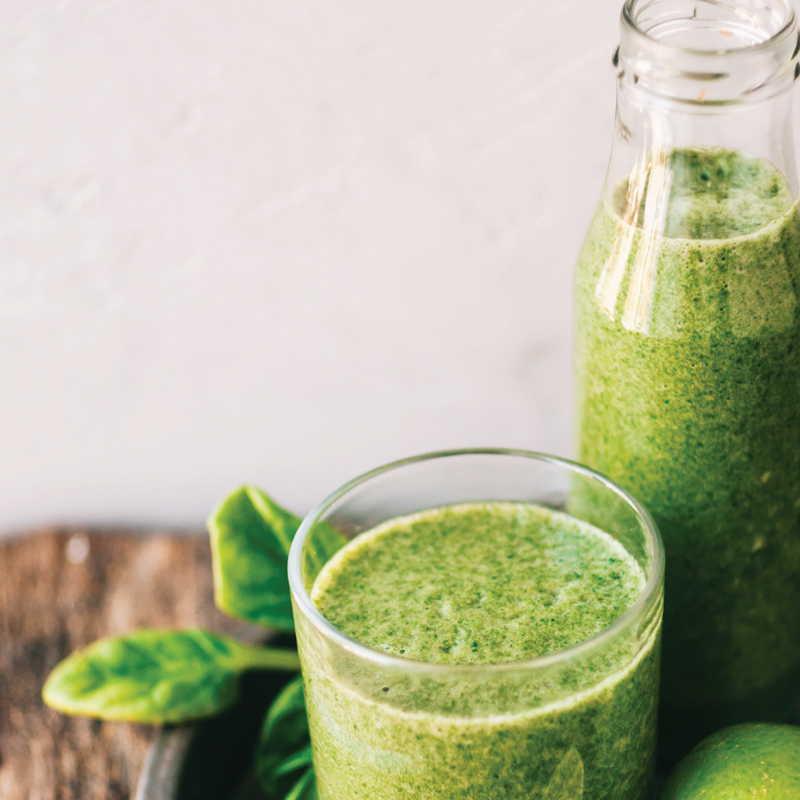
Comparing Diets
Ketogenic, Palaeolithic, Flexitarian, intermittent fasting, low carb, low fat, when it comes to diets, the list is endless. Depending on who you are, your genetics, family history and what your health goals are, any one of these diets may work for you or they may not. Below I am going to shed some light on some of the more common diets and hopefully break some misconceptions about healthy eating.
Ketogenic
High fat, low carb; seems simple right? Well more specifically a daily keto diet would include 70% fat, moderate protein and minimal carbohydrates. Originally used as a therapeutic diet for people with epilepsy, it has now gained traction for weight loss, cancer, Alzheimer’s disease and diabetes. A common misconception about keto is that it is high in meat and dairy and this is just not that case. A true ketogenic diet focuses on healthy fats from natural wholefood sources such as avocado, nuts and seeds, coconut, high quality protein from clean sources (ie: organic grass fed meat; pasture raised chickens and eggs) and plenty of non-starchy vegetables. Non-starchy vegetables are typically lower in sugar and higher in fibre than starchy vegetables and include such things as leaves (rocket, lettuce, spinach, kale), broccoli, capsicum, cabbage, tomatoes, and so forth, you get the idea! Whilst the keto diet may be beneficial for some people ideally, it is not a diet that you would want to do long term as a reduction in starchy carbohydrates may affect digestive function. Starchy carbohydrates are important fuel for our microbiome and long term limitation of these foods can lead to dysbiosis, its best when following any diet protocol that you only follow the diet for a short period of time or have breaks periodically.
Paleo
If Keto is high in fat, then Paleo must be high in protein right? Wrong. That is one of the biggest misconceptions around the Paleo way of eating and is often the reason why people get this diet so wrong. The Palaeolithic way of eating focuses on eating as our ancestors did, think pre-agricultural, hunter and gatherer style. Lots of high quality meat and fish (naturally and ethically raised) and tonnes of fresh vegetables and fruit. The Palaeolithic way of eating also means sourcing your food locally and eating with the seasons. Another often forgotten aspect of Paleo is eating from the nose to the tail of animals. Yes that’s right no body part is left out! This is not only economical but it is also respectful of the animal and of the process it takes to prepare that animal for consumption. The Paleo diet removes all grains, legumes, and dairy, as well as processed foods, vegetable oils and refined sugar. If done right, the Paleo diet is essentially a wholefoods based way of eating, avoiding inflammatory processed foods which is great for weight loss and long term health.
Plant based
Eating plant based is less a diet and more a lifestyle, the reason for this is vegetarian, vegan even flexitarian fall under the plant-based category. You can be plant-based and still enjoy some fish, meat or dairy, the defining aspect of a plant-based diet is that the food focus is predominantly on plant foods including vegetables, fruit, whole grains, legumes, nuts and seeds. Again, the cornerstone of eating plant-based is that meals are centred around natural wholefoods, avoiding processed and packaged foods. When it comes to natural wholefoods, nothing is off limits when eating plant-based; however if you are eating animal products think of them as the side accompaniment to a meal with the main show being all about the plant foods. Locally sourced, organic foods are also prioritised, especially where animal based foods are consumed, if you’re including meat, fish, eggs or dairy, quality does matter. There is a big focus on ethically sourced foods; both with respect to the animal and the environment. There is so much flexibility around a plant-based way of eating and if done correctly, this way of eating is anti-inflammatory, high in fibre, antioxidants, and phytonutrients with the added health benefits of weight loss, reduced risk of diabetes, heart disease and even cancer.
Intermittent fasting
Intermittent can have profound health benefits if done correctly, however it isn’t for everyone. There are a couple of ways to approach intermittent fasting; you can eat all your meals in an eight hour window and then fast the other 16 hours. This is best achieved by eating your first meal mid-morning and then your final meal in the early evening, ensuring that your fasting period is during the night time, with the majority of the hours completed whilst you sleep. The second option is to eat regularly for five days, restricting your calories significantly on the other two days. I am not a huge fan of this approach as I don’t believe calorie counting is beneficial for anyone in the long term (read my Holistic Approach to Nutrition here). Intermittent fasting can help with reducing inflammation and weight loss, as the break in consumption of food helps to reset your metabolism, it can also help if you have digestive issues. Theoretically, if you’re eating your dinner at a realistic time (eg: 6-7pm) and consuming your breakfast at an appropriate time (eg: 7-8am) you are participating in a relaxed version of intermittent fasting as even abstaining from eating for a 12 hour window can benefit your health. Intermittent fasting is not suitable for everyone however, so if the following apply to you; blood sugar dysregulation, hormonal imbalances or a history of disordered eating, I would recommend you steer clear of intermittent fasting.
Mediterranean
The ultimate and original anti-inflammatory diet, based on the traditional diets of communities living in the Mediterranean. Two of the five Blue Zones, reside in the Mediterranean; Sardinia Italy and Ikaria Greece. Blue Zones are areas around the world identified as having the highest concentration of centenarians. These longevity hotspots have been studied for their diet and lifestyle to determine what contributes to a healthy long life, and the Mediterranean diet is a huge part of what sets these communities apart from the rest of the world. The Mediterranean diet is similar to a plant-based way of eating, in that it prioritises minimally processed, locally sourced plant food as well as legumes, wholegrains, nuts and seeds, olive oil, and fresh fish, and is traditionally lower in saturated fats as there is minimal to no meat and dairy. The Mediterranean diet is rich in polyphenols (micronutrients found in plants) which have profound anti-inflammatory and health promoting effects, as well as essential fatty acids and dietary fibre; both of which when consumed in abundance provide long term health benefits. Interestingly, it is polyphenols, essential fatty acids and dietary fibre which is lacking in the conventional Western diet, as the majority of food consumed is processed and packaged. The Mediterranean diet has been studied for its cardiovascular health benefits, among other chronic health conditions such as metabolic syndrome, diabetes, Alzheimer’s disease, obesity and so much more. If you’re looking to improve your health, the Mediterranean diet is a great place to start.
To summarise; I want to share a tiny secret, most diets that are actually beneficial to your health have the same basic principles – eat natural wholefoods (avoid packaged, processed foods) ensuring you eat adequate amounts of quality protein, healthy fats and carbohydrates, whilst also prioritising nutrient dense plant foods. Keep in mind that when it comes to health, there is not a one size fits all approach and careful guidance from a qualified practitioner is always advised, remember our Herb Bar service offers free mini phone consults every day the clinic is open. If you have questions about this article or what diet may best suit you, phone the clinic and speak with a qualified practitioner today!
Yours in health,
Samantha Wilson







